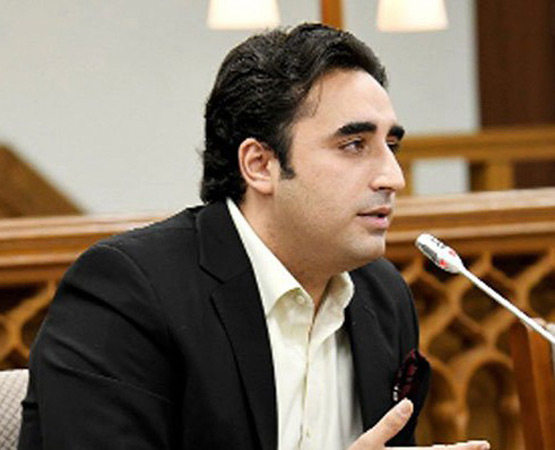 Criticising the PTI Chairman Imran Khan for “unnecessary politics” on the appointment of the next army chief, Foreign Minister Bilawal Bhutto Zardari on Tuesday said that his politics has revolved around that appointment since the beginning.
Criticising the PTI Chairman Imran Khan for “unnecessary politics” on the appointment of the next army chief, Foreign Minister Bilawal Bhutto Zardari on Tuesday said that his politics has revolved around that appointment since the beginning.
He made the remarks while addressing a program organised to celebrate 75 liver transplants by Dow University of Health Sciences at their Ojha campus. The foreign minister said that none of the government allies or anybody else should speak about such things in public meetings amid the prevailing economic situation. He maintained that the coalition government was taking measures to steer the country out of economic challenges. Pakistan is now out of the default threat.
Bilawal extended congratulations and best wishes to Dow University of Health Sciences on celebrating the successful establishment of liver transplant services in the city.
“We can strengthen our healthcare system and improve the delivery of healthcare by joining hands with well-trained human resources; the upbringing of the healthcare system and its successful conveyance to the common man has always been our priority,” he added. Earlier, Chairman PPP inaugurated a new OPD Complex comprising four blocks constructed at a cost of Rs500 million. He also performed the groundbreaking ceremony of the Oncology Unit Foundation and planted a tree. Sindh Chief Minister Syed Murad Ali Shah said his government firmly believes that affordable and high-quality healthcare was a fundamental privilege of every citizen. “It is not only ethically and socially imperative but also a necessary ingredient for the sustainable long-term development of our economies and society.”
Murad further said, “It is a privilege to stand by our healthcare workers who have worked industriously to provide quality healthcare.” He congratulated Dow University of Health Sciences for launching liver transplant services for the people of Sindh. He said the healthcare system’s foremost challenge was to provide adequate health coverage and equal access to medical services for all.
“When citizens have to pay out of their pockets, they may delay or relinquish necessary treatments and risk becoming impoverished, especially by chronic diseases which require long-term care,” he observed.